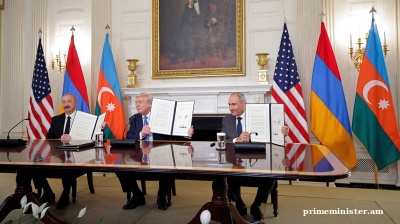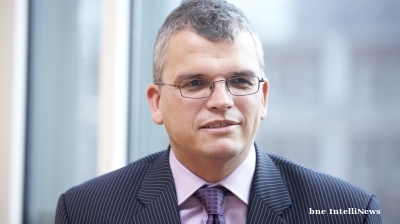Joe Biden seems to be getting the band back together, drawing heavily on veterans of the Obama administration for his foreign policy team. In many ways that is a good thing after four years of erratic decision-making and malign neglect, as these are serious professionals with experience and expertise. Antony Blinken, the incoming Secretary of State, was Deputy Secretary of State; his immediate subordinates, Wendy Sherman and Victoria Nuland, were Undersecretary of State for Political Affairs and Assistant Secretary of State for European and Eurasian Affairs respectively. These are heavy-hitters.
However, it also poses a danger; judging by some early hints and pronouncements, there is a risk of too much concentration on re-litigating old crises, returning to former positions, and quixotic attempts to redeem past mistakes. But 2021 is not 2016.
Sins of the fathers
The Obama years were, after all, not years of particularly successful policy. The New START arms control treaty was agreed in 2010, which was an undoubted step forward, but otherwise an unrealistic over-estimation of US strength and under-estimation of Russian determination led to a series of failed initiatives that played their part in the worsening relationship.
The infamous 2009 “Reset” may or may not have been an unwise gamble on the presidency of Dmitry Medvedev, but the US-led campaign on Libya and the openly expressed hopes that he would replace Russian President Vladimir Putin certainly helped confirm Putin’s determination to re-assume the presidency. In 2011, Biden had reportedly told a gathering of opposition figures at Spaso House, the US ambassador’s residence in Moscow, that it would be better for Russia if Putin did not run for re-election.
Washington consistently over-estimated its capacity to dictate the relationship. In 2009, Biden told the Wall Street Journal that he thought: “We vastly underestimate the hand that we hold” and that a Russia with a “shrinking population base” and “a withering economy” would have to accommodate Western – US – interests.
It didn’t happen, but this “declinist” perspective continued to dominate American calculations. Obama’s dismissal of Russia as a mere “regional power” in 2014 – after it had already annexed Crimea – not only infuriated the Kremlin; it also demonstrated a continued failure to recognise the limits of US influence and pressure.
The 2012 Magnitsky Act undoubtedly inconvenienced many important Russians, but the hope that this would influence policy proved misplaced. Anger at Moscow’s willingness to give Edward Snowden sanctuary and successive waves of sanctions because of the seizure of Crimea and intervention in the Donbas did not bring about the desired results. The erasure of Obama’s “red line” in Syria in 2013 and the impotent complaints about Moscow’s direct intervention in 2015 likewise achieved little.
Instead, they managed to persuade the Kremlin that America was at once fragile and hostile (the counter-myth to the US “declinist” one), which led to the interference in the 2016 presidential elections. On the one hand, Putin was scared of what a Hillary Clinton presidency might mean for Russia; on the other, he was convinced that there would be no serious implications of meddling. This proved every bit as toxic a miscalculation as any of those of the Obama administration.
Foolishness of the sons (and daughters)
The risk is that no one learns the lessons. The world, and both Russia’s and America’s places in them, is rather different now.
For a whole variety of reasons, Putin’s regime is now bunkered up and hunkered down, in an essentially defensive mind-set. Foreign policy – insofar as it does not have an impact directly on the stability of the state and the interests of Putin and his circle – probably matters rather less.
Of course, Ukraine and Belarus both matter to the Kremlin, and here it retains escalation dominance. If it wishes, if it is willing to pay the price, whether economic, political or military, it can match and trump any Western initiatives. It just would rather not, if it could.
(It is worth stressing: this is over Western initiatives. As Ukraine showed, a sufficient consensus within the country itself is another matter altogether.)
In Ukraine, Moscow appears genuinely uncertain which way the current is flowing, but willing to wait and see. Nuland’s appointment, though, will mean that a figure with a passionate commitment to Ukraine and considerable experience there will effectively be the number three at State. This may be good for Kyiv, although the danger is that she will instinctively see this as a tug-of-war with Russia, when Ukraine’s story is rather more complex.
For that matter, the current crisis in Minsk is not Kyiv in 2013-14. Any attempt to try to directly shape what happens in Belarus the way Nuland did in Ukraine could backfire disastrously. After all, Moscow will assume Nuland, as one of the feared “architects of regime change,” is behind whatever happens next in the region. It could well react accordingly, with heavy-handed incomprehension of the real dynamic at work.
Behind all this, there are two crucial changes that have happened over the past four years.
One is the emergence of a newly assertive, even aggressive, China. In 2016, Beijing was still viewed in Moscow, and largely also in DC, as the best supporting actor to leading man Putin. Not so now; if anything, the roles are implicitly being reversed. More to the point, as China becomes less concerned about playing down its ambitions – really a switch that has taken place in 2020 with the unleashing of the so-called “wolf warrior” diplomats – Russia is at once more concerned about its neighbours, but also less eager to challenge them.
This will be a difficult balancing act, and it would be all too easy for an over-aggressive US approach to push the Kremlin reluctantly into accepting Beijing’s lead as the least-worst option.
And speaking of leadership, four years of the Donald have only accelerated a pre-existing trend. The truth of the matter is that Europe, indeed the rest of the world, is not actually looking for American leadership.
Of course, what politicians say in campaigns does not necessarily translate into policy: Mario Cuomo’s adage that “you campaign in poetry and govern in prose” springs to mind. Nonetheless, Biden’s foreign policy statements were very heavy on assertions that it was crucial to “once more place America at the head of the table, leading the world.” After all, “the world does not organise itself. American leadership, backed by clear goals and sound strategies, is necessary to effectively address the defining global challenges of our time.”
Blinken is well-known as a multi-nationalist, and will from the first be seeking to rebuilt bridges with Europe (although it remains to be seen quite how things work with Brexit Britain, given Biden’s much-touted Irish roots and Blinken’s Francophilia). So too in their own ways will Wendy Sherman and Nuland (though she will never quite live down that “Fuck the EU” indiscretion).
There is no collective perspective on Russia within Europe; there is even less consensus with America. The danger is that Washington presumes that this is an opportunity for both leadership and prompt action – Biden made worryingly bullish noises about “retaliation” for the recent Russian cyber-espionage success, even though it is just the kind of operation the NSA also seeks to run – and considers alternative European views to be “backsliding.”
New generation?
There is, for all this, real scope for limited, practical improvements in relations between Washington and Moscow. Sherman’s previous role as an arms negotiator will hopefully be translated into some success by extending New START and reviving Open Skies, for example. A return to the Iran Joint Comprehensive Plan of Action (JCPOA) framework may also open up a side-channel to a Moscow that, for all its protestations of friendship with Tehran, has reasons to want to see its nuclear ambitions blocked.
This can be just a start. Washington needs to avoid the usual hubristic trap of thinking that somehow it can succeed where all others have failed and fundamentally reshape relations with Russia. In fairness, Biden and his team are seasoned enough that this is not a likely concern.
But the other trap is the opposite, to treat tomorrow purely as a place to avenge yesterday’s slights and correct yesterday’s mistakes. Of course the experiences of 2009-17 are relevant (as are those since), but only insofar as they inform the understanding of the different world of 2021. The Kremlin is now at once more wary of its own over-reach, more confident of its capabilities, and more scared of instability. It knows for a fact that it is not just a “regional power.”
But it is not really interested in foreign policy except insofar as its affects the domestic. There are no more Crimeas, and it has long since abandoned any thought of “Novorossiya” in the Donbas. It is not expecting any favours from a Biden administration, and will be looking closely to see if such heinous exponents of gibridnaya voina as Nuland are up to their old tricks again. It may well test Biden at first, just to measure his mettle, but essentially it is not looking for a fight. However, nor does it fear one – or rather, it fears rather more the potential consequences of not measuring up to any challenges – and unlike America, this regime feels under existential threat. So it is largely waiting and watching.
The ball is thus in Biden’s court. But hopefully it will be a new one.
Mark Galeotti is director of the consultancy Mayak Intelligence and also an honorary professor at UCL School of Slavonic & East European Studies
Opinion

Europe faces harsh realities in Ukraine as long war looms - Ash
Timothy Ash, senior sovereign strategist at BlueBay Asset Management in London, says European policymakers are belatedly waking up to the fact that the war in Ukraine is set to be prolonged — and that they alone may have to foot the bill.

COMMENT: US-brokered Armenia-Azerbaijan peace deal exposes Russia’s strategic failures
The recent peace breakthrough between Armenia and Azerbaijan is a major diplomatic win for the United States and a setback for Russia, according to a new report published by the Atlantic Council.

COMMENT: Why Beijing will never take Taiwan
Xi Jinping needs to think again before he sends so many young Chinese men and women to their deaths on Taiwan, for if the PLA does one day dare to land, they will be buried here.

COMMENT: Ukraine’s coming financial storm
“A crisis is drawing ever closer. It will break in Ukraine, but it won’t begin on the frontlines, where the country’s battle-weary brigades continue to impose a brutal cost on the Russian invader," writes Timothy Ash of BlueBay Asset Management.



